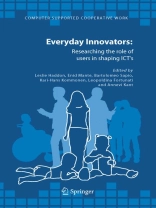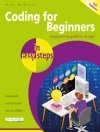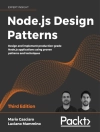Everyday Innovators explores the active role of people, collectively and individually, in shaping the use of information and communication technologies. It examines issues around acquiring and using that knowledge of users, how we should conceptualise the role of users and understand the forms and limitations of their participation.
- To what extent should we think of users as being innovative and creative?
- To what extent is this routine or exceptional, confined to particular group of users or part of many people’s experience of technologies?
- Where does the nature of the ICT or the particularities of its design impose constraints on the active role that users can play in their interaction with devices and services?
- Where do the horizons and orientations of the users influence or limit what they want and expect of their ICTs and how they use them?
This book enables a cross-fertilisation of perspectives from different disciplines and aims to provide new insights into the role of users, drawing out both applied and theoretical implications
Tabella dei contenuti
Frameworks: The Social, Unpredictable, and Innovatory Use of ICTs.- Beyond User-Centric Models of Product Creation.- Following the Emergence of Unpredictable Uses? New Stakes and Tasks for a Social Scientific Understanding of Ict Uses.- The Innovatory Use of ICTs.- Empirical Studies: Users as Innovators and Critics.- Supporting Creativity — Co-Experience in Mobile Multimedia Messaging.- The Social Shaping of New Mobile Devices Among Italian Youth.- Creative User-Centered Design Practices: Lessons from Game Cultures.- Innovation and Artistic Users.- Artistic Deviance and Innovation in Use.- The Mobile Multimedia Phone and Artistic Expression: A Case Study of Moby Click.- Problems of Researching and Involving Users in Design.- Questioning the “Rural” Adoption and Use of ICTs.- Dealing with Dilemmas in Pre-Competitive ICT Development Projects: The Construction of “The Social” in Designing New Technologies.- Test Scenarios and the Excluded User.- The Politics of User Involvement in Programes of Innovation.- The Construction of “Equal Agency” in the Development of Technology.- Community-Technology Interfaces in Participatory Planning: Tool or Tokenism?.- Conclusion.












